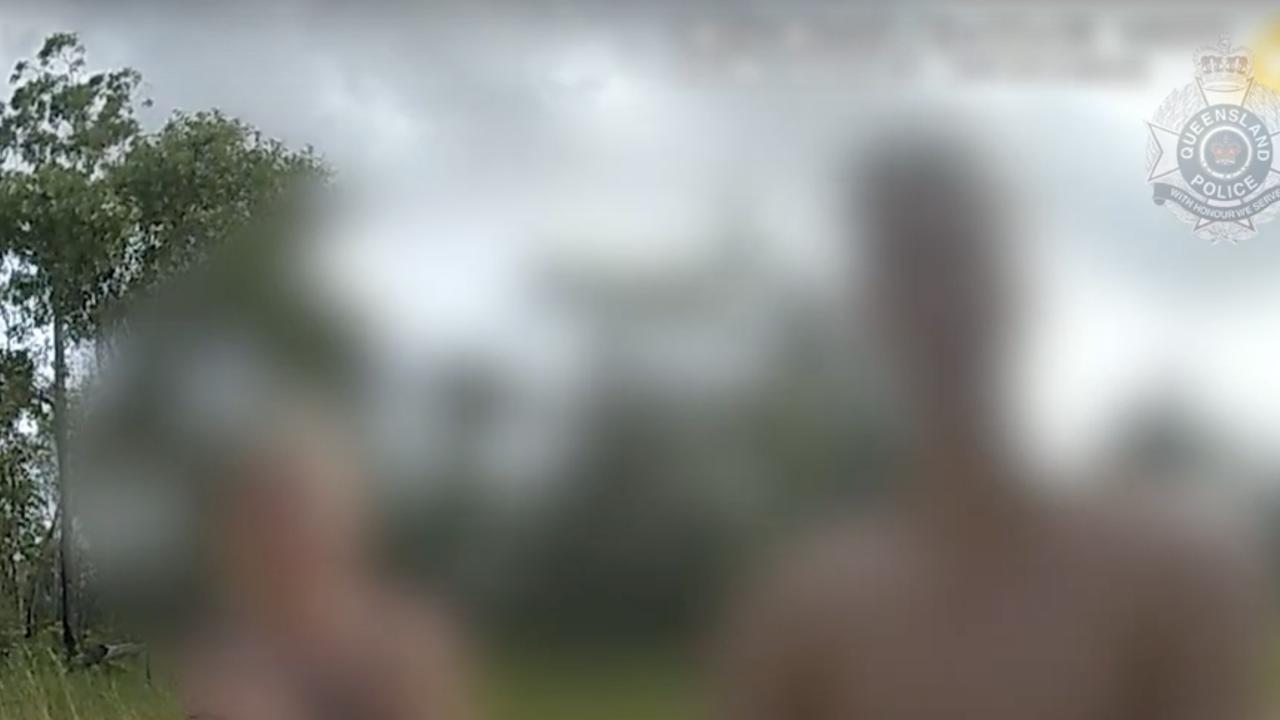K’gari dingo destroyed after attacking jogger
A dingo responsible for mauling a female jogger on K’gari had “lost its wariness of people” and has been killed - now authorities say “selfies” may be to blame.
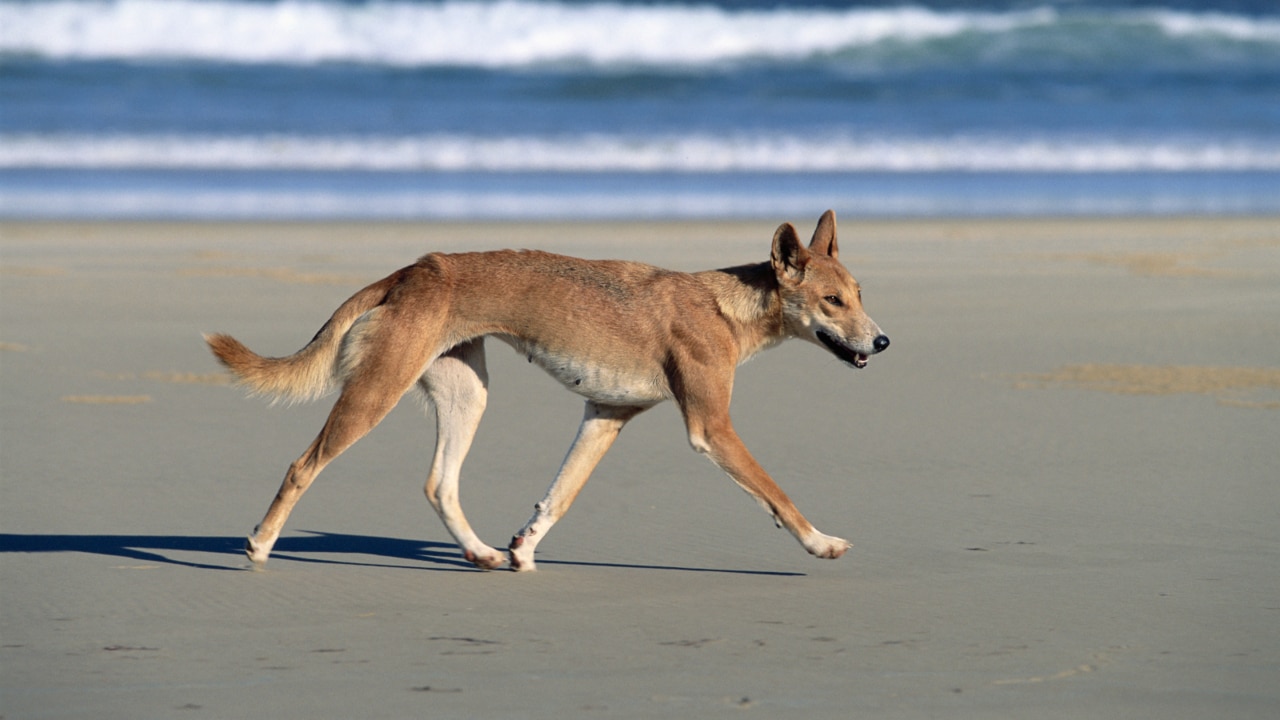
Selfies could be to blame for risky dingo behaviour at Queensland’s iconic tourist destination K’gari, it has been claimed.
On Wednesday afternoon a dingo believed to be responsible for mauling a female jogger on the island was killed by authorities.
In a statement, the department investigating the attack believes the animal “had lost its natural wariness of people” due to human behaviour.
The male dingo is understood to be one of four that attacked Brisbane woman Sarah Peet on the Island’s Orchid Beach on Monday morning, forcing her to run into the ocean, where a bystander was able to save her.
Ms Peet, 23, was left with serious injuries after being bitten 30 times.
On Wednesday evening, a Queensland Department of Environment spokesperson said that the dingo had been captured and “humanely euthanised”.
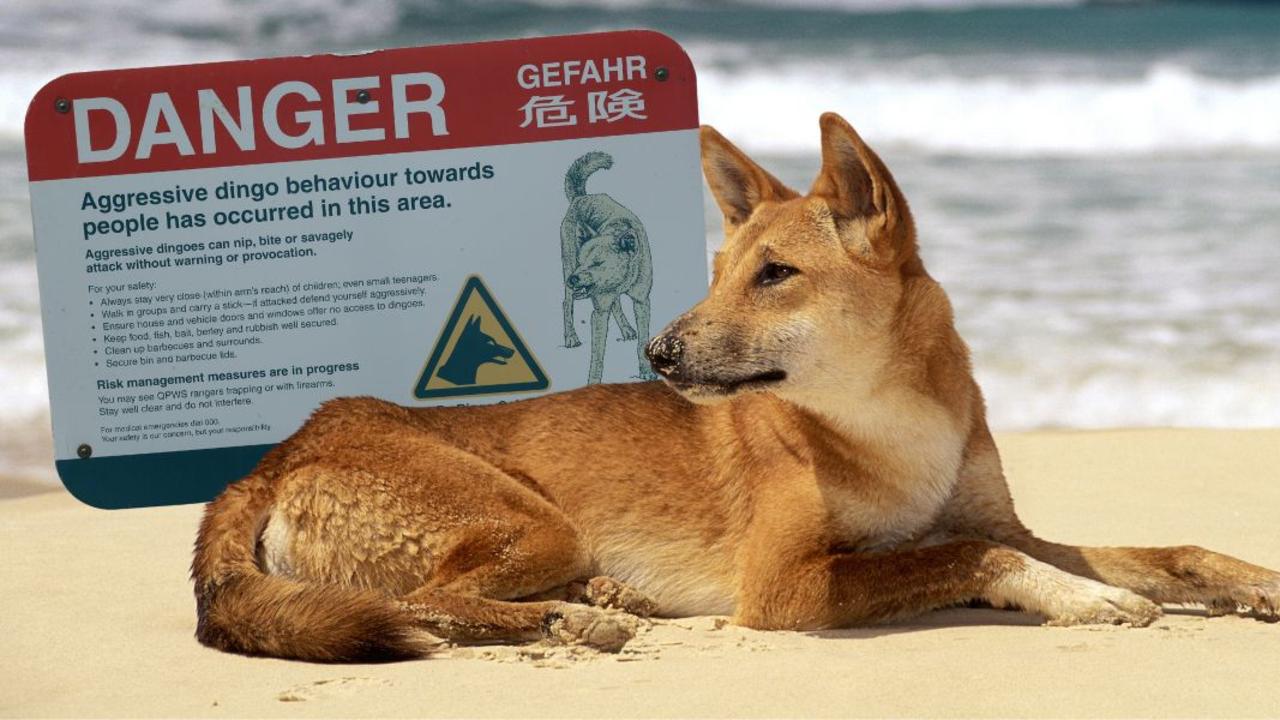
“Euthanising a high-risk dingo is always a last resort, and the tough decision by the Queensland Parks and Wildlife Service was supported by the island’s traditional owners, the Butchulla people,” a spokesperson said.
“The animal is around two-years-old, and when it was collared in April it weighed more than 17kg, which is heavy for a wongari (dingo) and a clear indication that it has been fed.
“It was also clear from its behaviour that it had become habituated, either by being fed or from people interacting with it for videos and selfies.
“The animal had lost its natural wariness of people, and entering campsites or loitering around people is not normal dingo behaviour.”
The department said the animal had been wearing a tracking collar since April.
The spokesperson said an investigation into Ms Peet’s attack was ongoing, including whether other dingoes were involved.
“Should the other animals be identified, we will consider our management options,” they said.
The attack has sparked calls for visitor caps on the popular Queensland Island.
“Dingo sticks” were also issued to tourists visiting K’gari after Monday’s attack.
Officials have warned that dingoes are showing “very concerning” behaviour after months of attacks on humans.
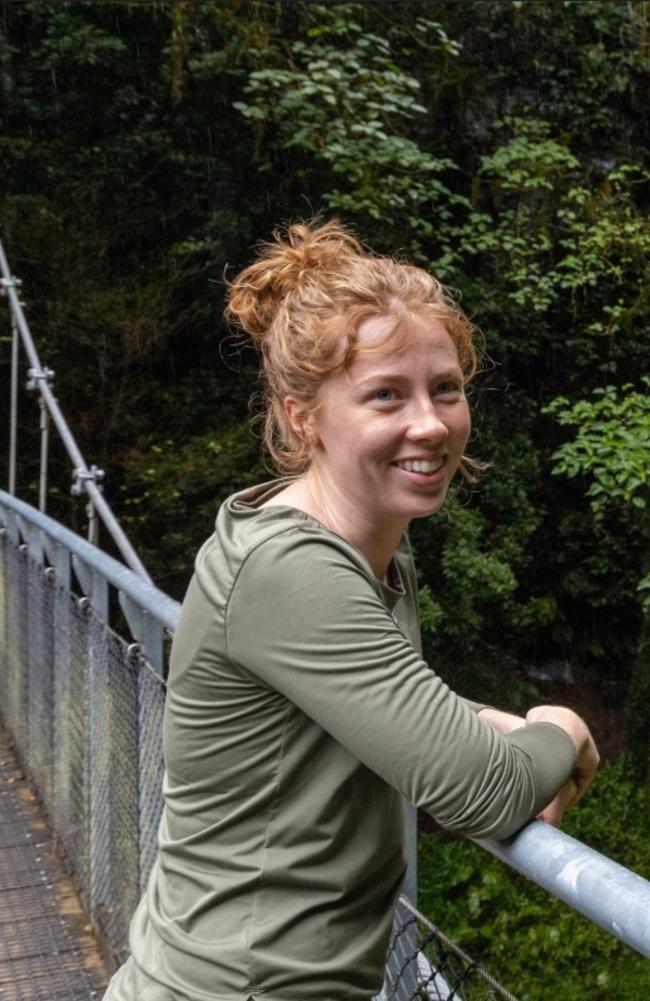
It was further confirmed this week that one of the dingoes identified in the attack had been involved in a previous incident at the popular tourist destination, formerly known as Fraser Island.
In the wake of the attack, bins of PVC piping have been put around the island to arm tourists against the dingoes.
Environment Minister Leanne Linard said on Tuesday that the dingo’s attacking behaviour was not unusual.
“Dingoes are pack animals,” she said.
“They tend to be very territorial and they stay within their particular area, whether that’s on the beach or other areas on the island.
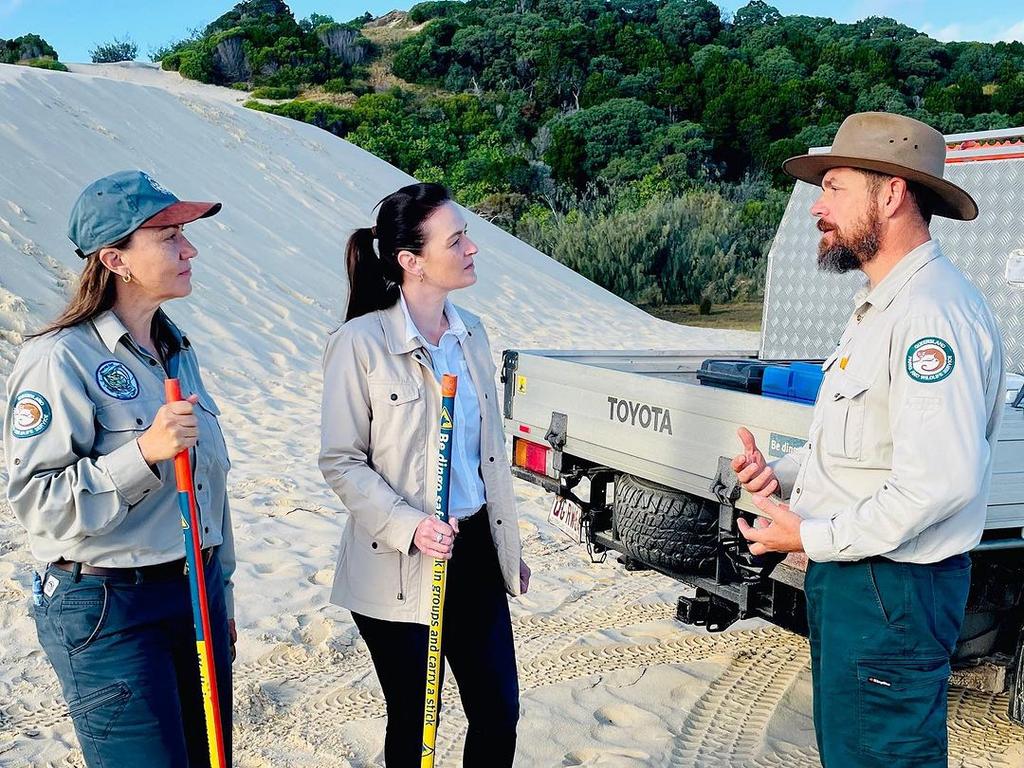
“It has not been relayed to me that the behaviour was in any way abnormal for them, but it was very concerning that they weren’t frightened away.”
Head ranger Linda Behrendorff said Ms Peet had been alone on a run when she caught the attention of the pack that was known to be “comfortable” with the Orchid Beach area.
“Unfortunately, for this woman this morning, she was alone and ended up in a situation that was quite compromising to her because of that,” she said.
“Don’t run, they will chase you.”
It was not unusual that the dingo pursued the woman into the ocean, as it is a method commonly used by the animals when hunting animals such as wallabies.
They push their prey into the water to tire it out before killing it.
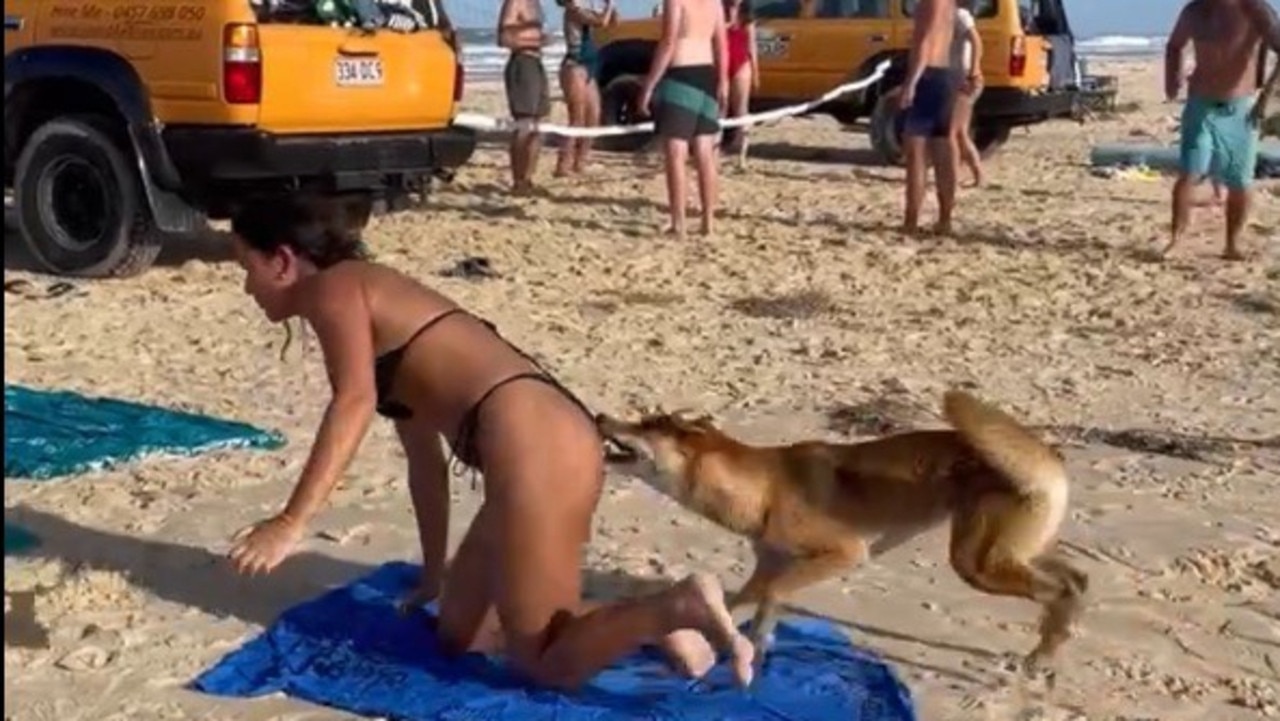
A dingo was terminated last month after it was filmed biting a tourist sunbathing on the beach. It was the first dingo to be put down since 2019.
Assistant principal ranger Danielle Mansfield said the animals’ increasingly brazen behaviour was caused by visitors deliberately or inadvertently feeding the dingoes.
“This has to stop now, and people have to make (visitors’) personal safety and the safety of their friends and families a priority,” she said.
The dingo or wongari is considered native wildlife under the Nature Conservation Act 1992 and is protected in national parks.
K’gari is a World Heritage-listed island along Queensland’s southeastern coast and is part of the Great Sandy National Park, known for its long beaches, forests and pristine freshwater lakes.


